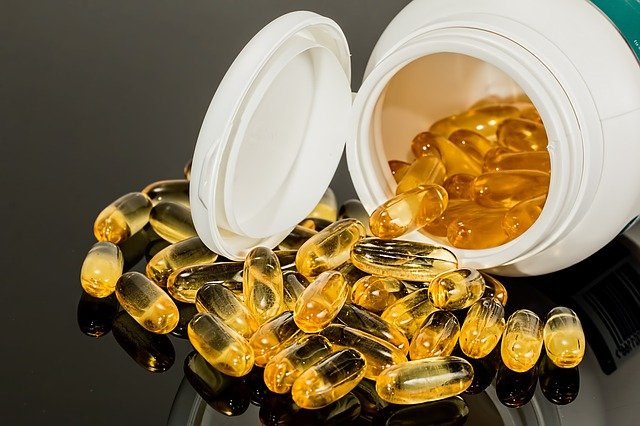Many of the people we work with suffer from stress. We see people feeling overwhelmed all the time due to the stress of modern life. When we are stressed, our bodies release stress hormones, which cause us to fight or flee response. Our defense system is activated as a result of this, enabling us to react quickly to threats.
Everyone handles stress differently. Our ability to cope with stress may be influenced by our genes, early life events, and even economic and social events. If left untreated, it can make it difficult to relax and perform well at work, maintain friendships, and engage in enjoyable activities.
Regular exercise, adequate sleep, and a healthy diet are the most effective ways to prepare your body to deal with stress and cure for anxiety. Several supplements and vitamins are effective anxiety home remedies.
Vitamins for Stress Relief
B vitamins
Sufficient B vitamin intake can help control the body’s energy levels, the adrenal glands and clarity of mind and even help with stress management. Either external or internal forces can cause stress. A hectic schedule isn’t the only source of stress. Changes in blood sugar, folate, magnesium levels, and the adrenal system can increase stress in the body. These changes are usually the result of a vitamin deficiency rather than a usual reason, specifically a vitamin B deficiency. Of the 13 essential vitamins, One of the most closely related to stress is vitamin B.
Controlling the B vitamin levels can benefit the entire body and mind. A healthy diet can provide enough vitamin B for some people. Meats, leafy greens, eggs, whole grains, legumes, fruits, and many seeds and nuts are the best sources of vitamin B. Even if a person is deficient in one B vitamin, a B-complex supplement will still be beneficial.

Vitamin C
Although the link between vitamin C and mood may appear surprising, persons deficient in vitamin C typically feel exhausted or depressed. This antioxidant is essential for the central nervous system to maintain homeostasis (balance). According to several studies, people who had lower-than-normal vitamin C levels reported that their mood improved after receiving vitamin C supplements.
According to a study, vitamin C deficiency is often associated with stress-related disorders, and taking a vitamin C supplement will help you feel better and less anxious. In the meantime, consume plenty of vitamin C-rich fruits and vegetables, such as oranges and red peppers. If you take a vitamin C supplement, don’t take more than 2,000 mg of vitamin C per day.

Vitamin D
Vitamin D is often referred to as the “sun-friendly vita-min” because the body produces it when exposed to sunlight. While it is unknown whether a vitamin D deficiency can cause depression and anxiety, there is a link between low vita-min D levels and higher levels of depression and anxiety and other mood problems. A study from 7,534 adults discovered that those who took vita-min D supplements and experienced their negative feelings symptoms improved.
Supplementing with vitamin D may benefit those who are depressed and have a vita-min D deficiency. Another study also linked low vita-min D levels to more severe anxiety, and depression. More research is needed to discover how vita-min D deficiency and depression may be linked and how taking vita-min D supplements may affect depression symptoms due to the mixed results.

Magnesium
Magnesium is a mineral that the body requires to function correctly. It also helps develop bone, protein and DNA. Aside from these advantages, magnesium may be beneficial as a natural anxiety treatment. While more research is needed, there is evidence that magnesium may help with anxiety. Magnesium regulates many physical processes, including nerve and muscle function, blood sugar levels, and blood pressure.
You can also read the astounding benefits of Alkaline Water.
A systematic review of more than 20 studies revealed that taking magnesium supplements increased all anxiety-related actions. Apart from helping to reduce anxiety and stress levels, it is also linked to alleviating symptoms of depression. If you’re considering trying magnesium supplements to treat stress, make sure you take these some time before or following taking any other supplements.

Omega 3
Omega-3 fatty acids can be found predominantly in fish oil and certain marine algae. Based on a recent study that examined the effect of consuming higher amounts of omega-3 fatty acids, fish oil decreased anxiety and inflammation in a collection of healthy young people. Omega-3s quickly move across the membrane of brain cells, and they interact with mood-related molecules in the brain.

They also have anti-inflammatory effects that can ease depression. One study showed that consuming a daily Omega 3 supplement can decrease suffering from stress symptoms by up 30%. But, many people don’t eat any oily fish, and the amount of people who reach the omega-3 recommended intake is just 16%. For the rest of us, supplementation is worth a look.
Also read, TRIPLEX FISH OIL – A SUPPLEMENT THAT WILL CHANGE YOUR LIFE


5 thoughts on “What Vitamin Should I Take for Anxiety?”